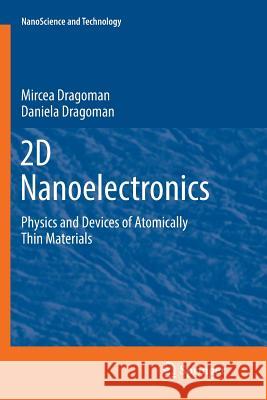2D Nanoelectronics: Physics and Devices of Atomically Thin Materials » książka
topmenu
2D Nanoelectronics: Physics and Devices of Atomically Thin Materials
ISBN-13: 9783319839424 / Angielski / Miękka / 2018 / 199 str.
Kategorie:
Kategorie BISAC:
Wydawca:
Springer
Seria wydawnicza:
Język:
Angielski
ISBN-13:
9783319839424
Rok wydania:
2018
Wydanie:
Softcover Repri
Ilość stron:
199
Waga:
0.30 kg
Wymiary:
23.39 x 15.6 x 1.14
Oprawa:
Miękka
Wolumenów:
01
Dodatkowe informacje:
Wydanie ilustrowane











